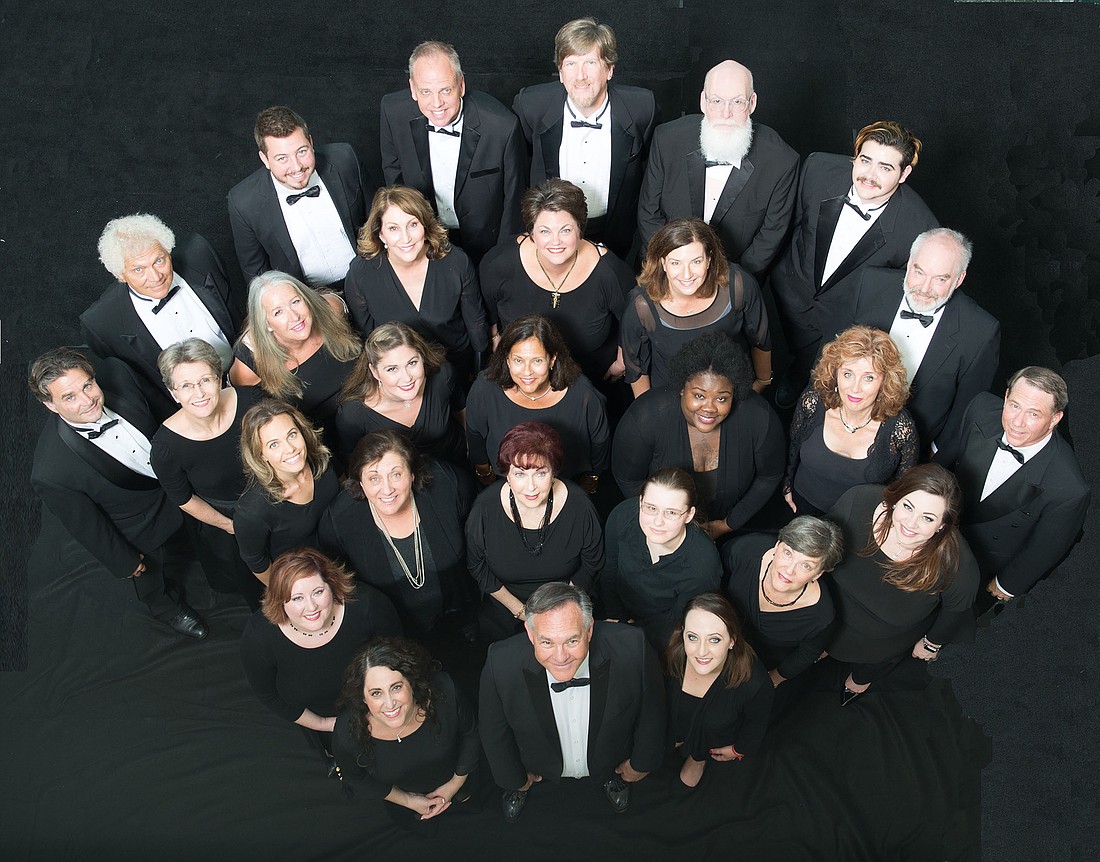- November 23, 2024
-
-
Loading

Loading

The singers of Choral Artists of Sarasota love to raise their voices in harmony.
“Then Sings My Soul,” the group’s first concert of the season, will find harmony in the musical strands of the three Abrahamic faiths. For Joseph Holt, the choral ensemble’s artistic director, that celebration of unity is a passion — and it’s personal.
Holt grew up in Atlanta during the height of the civil rights era. In the mid-1960s, racism and bias was still an undisguised part of Southern society. His father was a Presbyterian minister who fought against the hate. He began reaching out to colleges throughout the Atlanta area and invited foreign exchange students to informal gatherings at his church.
“There was an ugly backlash going on against the civil rights movement,” recalls Holt. “My dad wanted the visiting students to feel safe and welcome. They’d meet on a monthly basis, and Dad would always bring the whole family along. The foreign students would talk about their religions and cultures, and share stories and home movies. Dad would also bring us to different centers of worship when we later lived in the [Washington,] D.C. area — a synagogue, a mosque, a Buddhist temple. He exposed his kids to different faiths, cultures and skin colors at a very young age. It opened us up to a larger world — and opened our minds.”
Holt and his siblings grew up with a universal concept of religion. They also learned the impact of hate and bigotry firsthand.
“We came back from one of the meetings in Atlanta,” he recalls. “We were all in a great mood — until we saw a cross burning in the backyard. It made a huge impression on all of us.”
From that day forward, Holt knew which side he was on.
“Religion can bring people together or drive them apart,” he says. “My father taught me that what we have in common is far more important than our differences.”
He adds that music is a powerful expression of this unity.
“Music and worship are inseparable,” he says. “We express our deepest longings in music. We’re all born with a hunger for the divine — how could we not burst forth into song?”
“Then Sings My Soul” will intermingle worship songs from the Jewish, Islamic and Christian faiths. Holt says the timeless Christian hymns include “Simple Gifts,” “How Great Thou Art” and “A Mighty Fortress Is Our God.”
“Each song tells a story,” he says. “And each song has a story behind it.”
He says many familiar Christian hymns began as folk songs, and were later arranged by great composers.
“These are songs of the people,” he says. “Our concert arrangements are grander and have more musical fantasy than the versions you’ll hear in church, but there’s still a wonderful directness and simplicity at their heart.”
The traditional Shaker hymn “Simple Gifts” celebrates that stripped-down spirituality. Aaron Copland’s version is the most familiar, and this concert will feature Mack Wilberg’s arrangement.
Dan Forrest’s arrangement of “How Great Thou Art” is based on a traditional Swedish melody. Carl Boberg wrote the lyrics. The poet had been walking home on a sunny day when a violent storm suddenly appeared and then vanished. Awe of God’s power flowed into his mind — and the poem with it.
Dan Forrest’s arrangement of “Nearer, My God, To Thee” has another tempestuous heritage. This hymn was famously performed by the orchestra of the RMS Titanic as it sank.
Arrangements of sacred songs from other Abrahamic faiths will create a counterpoint to the Christian hymns. (Printed translations will be supplied for non-English lyrics.) The songs of Judaism will include Isadore Freed’s “Ein Keloheinu” and David Burger’s “T’filah Lishlom M’dinat Yisrael.” Fahad Siadat’s “Prière” and Ethan Perry’s “Zikr” sings of Islamic yearning for the divine.
The concert will bring these streams of faith together with the voices of Choral Artists of Sarasota, accompanied by Ann-Stephenson Moe at the organ, and an ensemble of brass instrumentalists from around the region. But Holt is quick to add that unity doesn’t mean homogeneity.
“Since the days of Bach, the hymns of Christian worship rely heavily on the organ,” he says. “The songs of the various Islamic traditions are often a cappella; “Prière” is from the Sufi faith; the lyrics are in Farsi, and it has the feeling of a meditative chant. Judaic music can be a cappella — it’s influenced by the tradition of the cantor. Even when there’s a musical accompaniment, the clarity of the words is always paramount. Singing and repetition is often used as an aid to memorization. That’s just scratching the surface of the many variations between faiths and within faiths. The music of the Abrahamic religions doesn’t sound the same — and we wouldn’t want it to.”
Holt adds that, despite these multitudinous differences, the songs flow from the same passion. “They’re songs of love. A love of the divine,” he says. “Our soul cries out to God. Singing is a way to put into words a sacred love that’s really beyond words. Our love of God is ineffable. But we have to keep singing, anyway.”